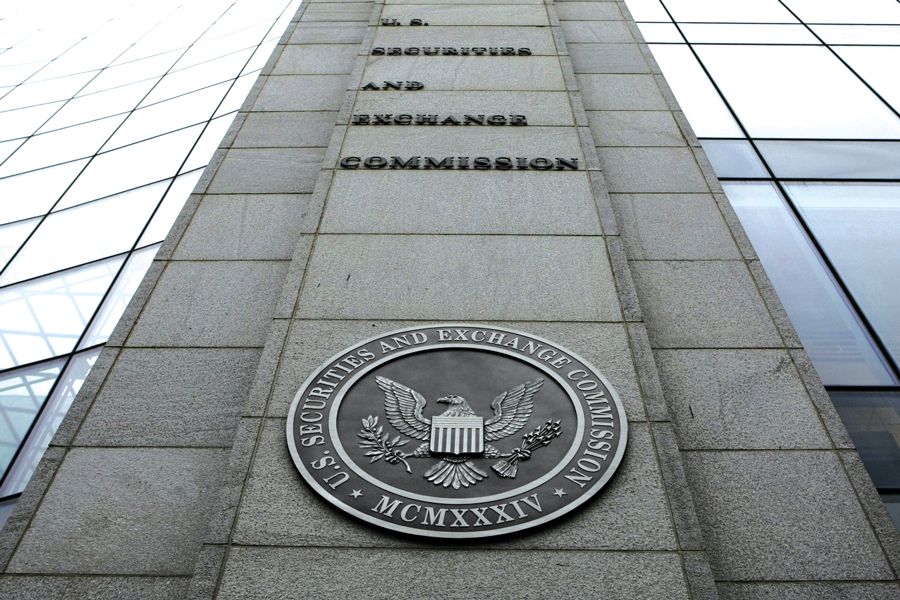As the Securities and Exchange Commission prepares to overhaul its climate disclosure rule for issuers, industry groups are asking the regulator to keep Scope 3 emissions out of the picture for now.
However, those same groups also concede their request might be a long shot.
In February, the US Chamber of Commerce held an online event dedicated to ESG disclosures and liability, focusing heavily on the forthcoming SEC proposal. Along with a potential requirement for ESG claims made by investment companies and advisers, the SEC has on its regulatory agenda a note that it is considering “rule amendments to enhance registrant disclosures regarding issuers’ climate-related risks and opportunities”.
Although the SEC has had a framework for voluntary climate-risk disclosures for more than a decade, it began a review of the existing regulation in 2020 and began collecting comments last year to determine how to update its requirements.
“We’re going to have a rule proposal. We’re going to have more guardrails around what should be disclosed around climate,” said Tom Quaadman, executive vice-president of the Center for Capital Markets Competitiveness.
One panelist at the event, Chuck Chaitovitz, vice-president of environmental affairs and sustainability at the Global Energy Institute, noted that publicly traded companies are increasingly pressured by investors to disclose data about their emissions and climate risks. More companies are doing so as part of the energy transition, he said, but it is most common for them to report on Scope 1 and 2 emissions, or those that result directly from their operations or are from the energy sources they use. Scope 3 emissions can be much more extensive, pertaining to everything upstream or downstream for what they make and sell.
“It’s simply too early to require Scope 3 across the board,” Chaitovitz said. “Should the SEC include Scope 3 in the upcoming rulemaking, they will find companies are simply not ready to comply.”
Jay Clayton, the SEC chair during the Trump administration, questioned the need for any additional regulation.
“We already have a climate change, climate impact, climate disclosure scheme. There is a great deal of disclosure that is already available to investors about how a particular company is addressing climate change,” Clayton said. “Climate policy is being assumed, and that assumption then informs the rules that are being crafted … It seems to be [based on] whatever agency is pursuing their particular rules. That is a very confused and highly suboptimal way to go about this.”
A key difference in the debate over the need for more regulation is whether climate-risk information is financially material. In comments to the SEC, Democrats have said it is, and Republicans have generally disagreed. Meanwhile, fund managers have strongly favored the push for heightened disclosure standards.
“Scope 1 and 2 greenhouse gas emissions are well understood and should be disclosed immediately upon effectiveness of new disclosure rules,” a letter last year from State Street Global Advisors to the SEC read. “Consensus around Scope 3 greenhouse emissions’ disclosures, while also important to investors, is still emerging, and full Commission mandated disclosure is premature,” it stated, adding that the SEC should “mandate Scope 3 disclosures as soon as practicable.”
Jens Peers, CEO of Mirova US, wrote last year in the firm’s letter to the SEC that Scope 3 disclosures are essential, even if imperfect at first.
“Disclosures that are limited to an issuer’s direct operations would not prove sufficient to us to fully understand the level climate-related risks and opportunities associated with a business model,” Peers stated. “We cannot understand the climate impact of a bank
or of a car manufacturer if Scope 3 emissions and avoided emissions are not taken into
account. Disclosure limited only to Scopes 1 and 2 is not sufficient and does not enable
investors to understand the real climate impact of those businesses.”
A concern raised by industry groups around Scope 3 emissions reporting is that there is the potential for double counting, particularly if a new rule is interpreted extremely liberally. For example, a car manufacturer could conceivably report emissions not only related to the raw materials and procurement for making automobiles, but also emissions that come from the vehicles after being sold, as well as those of the fuel supplies needed to power them, said Scott Kimpel, partner at law firm Hunton Andrews Kurth. Meanwhile, the materials providers and energy companies might also be reporting emissions tied to the same car, Kimpel said.
“For one automobile, how many times are we going to measure its emissions?” he said.
Penny Rostow, senior vice-president and deputy general counsel at Nareit, raised similar concerns around the real estate industry. A question is whether commercial leasing companies, for example, would be required to report emissions data tied to occupancy, Rostow said.
“The tenant’s business is wholly independent of the real estate owner’s business,” she said. “Commercial real estate landlords don’t even have the right to demand that their tenants provide this greenhouse gas emissions data in a timely way or even assure the reliability of such data.”
There is an emerging trend among some real estate investment trusts, however, of writing “green leases,” which do require tenants to provide emissions figures, she noted.
Regardless, industry groups are bracing for a regulatory proposal with more requirements than they would like, given the current three-to-one Democratic majority among SEC commissioners.
“I’m not confident that the current makeup of the SEC will be sympathetic to these concerns,” Kimpel said.








